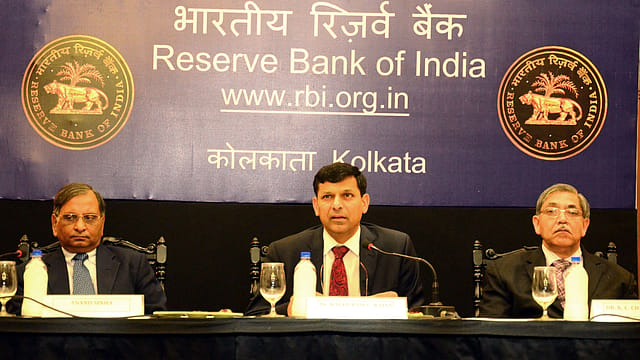Rajan blames over-optimistic bankers for bad loans
ADVERTISEMENT

Over-optimistic bankers, a slowdown in the government decision-making process and moderation in economic growth mainly contributed to mounting bad loans, PTI quoted former RBI Governor Raghuram Rajan as saying in a note to a Parliamentary panel.
According to the agency, he said in a note to the chairman of the Estimates Committee, Murli Manohar Joshi: “A variety of governance problems such as the suspect allocation of coal mines coupled with the fear of investigation slowed down government decision-making in Delhi, both in the UPA and the subsequent NDA governments.”
PTI said he added that a larger number of bad loans originated in the period 2006-2008 when economic growth was strong, and previous infrastructure projects such as power plants had been completed on time and within budget.
"It is at such times that banks make mistakes. They extrapolate past growth and performance to the future. So, they are willing to accept higher leverage in projects, and less promoter equity. Indeed, sometimes banks signed up to lend based on project reports by the promoter’s investment bank, without doing their own due diligence,” he said.
January 2026
Netflix, which has been in India for a decade, has successfully struck a balance between high-class premium content and pricing that attracts a range of customers. Find out how the U.S. streaming giant evolved in India, plus an exclusive interview with CEO Ted Sarandos. Also read about the Best Investments for 2026, and how rising growth and easing inflation will come in handy for finance minister Nirmala Sitharaman as she prepares Budget 2026.
“One promoter told me about how he was pursued then by banks waving chequebooks, asking him to name the amount he wanted.”
He also pointed to the loss of promoter and banker interest for the rise in NPAs.
Over malfeasance and corruption in the NPA problem, PTI quoted him as saying, “Undoubtedly, there was some, but it is hard to tell banker exuberance, incompetence, and corruption apart.”
“Clearly, bankers were overconfident and probably did too little due diligence for some of these loans. Many did no independent analysis, and placed excessive reliance on SBI Caps and IDBI to do the necessary due diligence. Such outsourcing of analysis is a weakness in the system, and multiplies the possibilities for undue influence," the note said.
Rajan suggested the need to improve governance of public sector banks and the process of project evaluation and monitoring to lower the risk of project NPAs. And he argued for strengthening the recovery process and distance public sector banks from the government.
